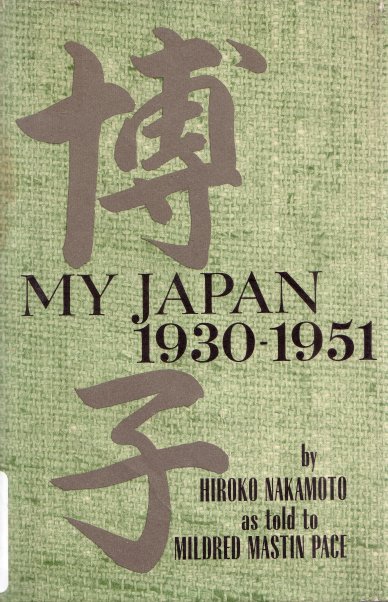
My Japan

The story is by a woman (Hiroko) who was born in Hiroshima and was 15 when the war ended. The book starts out telling the story of her early life. Her parents were divorced.
She was seven when Japan went to war with China. She writes how rice and other things ended up becoming rationed. Her father then gets remarried.
Hiroko nears the end of sixth grade, preparing for exams to get into junior high, when Japan attacks the United States. As the war goes on, she says some very interesting things, such as anyone catching a fresh fish had to sell it to the army or navy food centers. She also writes about the Japanese secret police, and how they kept a close watch on any Japanese who had spent any time in America.
She writes about how school was stopped, and the students were sent to work on various war-related projects. She writes about how the students heard nothing but good news for Japan on the radio, how their forces were constantly winning battles which was, of course, by that time totally false.
By page 56, the author is telling about the bombing of Hiroshima. She was badly burned, but managed to survive with the help of relatives in a nearby city. Her mother had already died.
She then writes about how horribly the Japanese expected to be treated by American soldiers once they occupied Japan. Everything goes well, though, and the U.S. soldiers and the people of the town get along with no problems.
Hiroko graduates from high school and wants to go to college. She is in a hot springs town for a short time and is very unhappy with the Japanese girls who get along so well with the American soldiers. She ends up staying at a hostel and helps translate things for the Japanese workers, having taken English in secondary school.
She writes about Japanese soldiers freed from Russia, but only ones were freed who had converted to Communism.
One of the teachers wants Hiroko to help as a translator at a Koran church, and Hiroko writes about the prejudice the Japanese had against Koreans.
She writes about how the role of women and women's attitudes themselves changed as a result of the war.
She ends up going to the U.S. to study at a college.
Main Index
Japan main page
Japanese-American Internment Camps index page
Japan and World War II index page
|